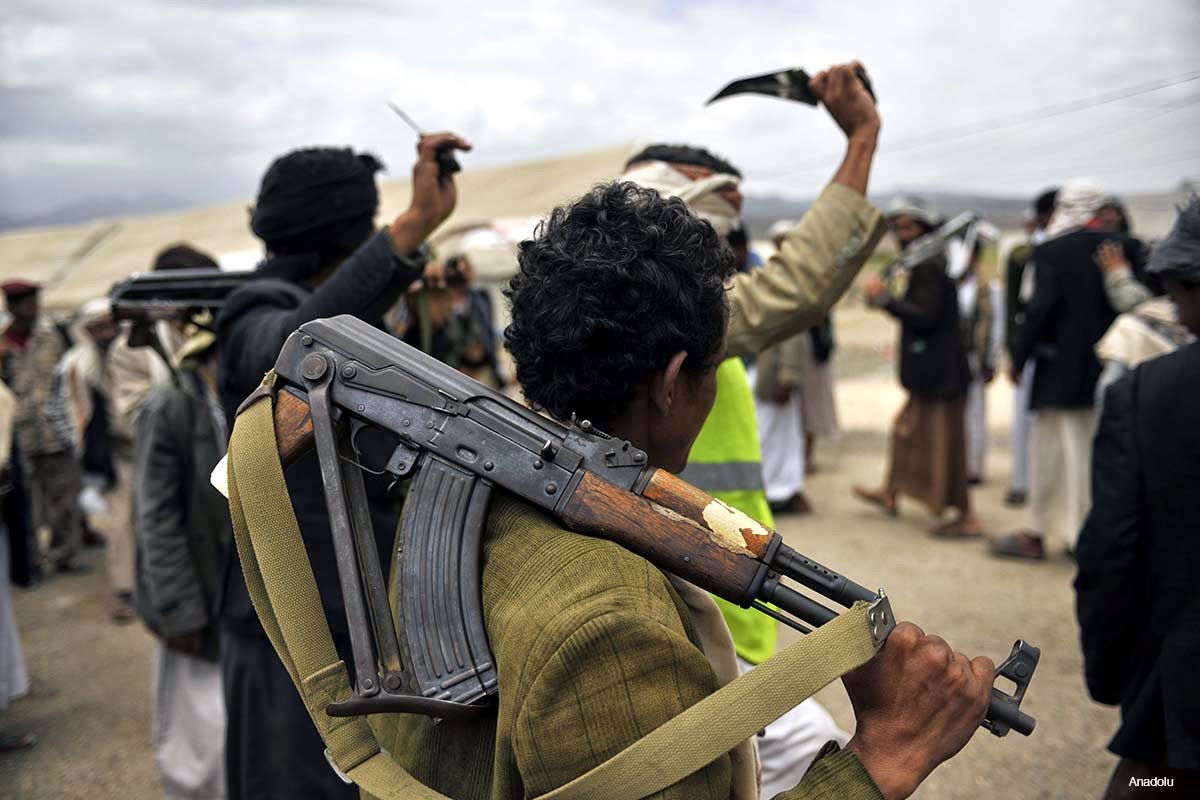“Yemen’s war is one that can be stopped, but it needs some sort of pressure to guarantee peace keeping. There are however many ways in which a truce can still be reached.” This is according to Sama’a Al-Hamdani, an independent analyst on a civil war that has effectively crippled the south-western gulf state.
Clashes have continued between Houthi fighters and forces loyal to Yemeni President Abd Rabbuh Mansur Hadi, despite Monday’s implementation of a 5-day humanitarian truce aimed at allowing aid agencies to assist affected civilians. The temporary halt has however had little effect in some parts of the country, as forces on both sides continue to trade fire. In addition, a Saudi-led coalition backing anti-Houthi forces has also continued air strikes in at least two provinces, despite initially confirming their adherence to the truce.
The United Nations (UN) as well as several other humanitarian organisations have been eager to shed light on what they have described as an ‘unprecedented humanitarian crisis’. According to reports, civilians are now living off bear minimums, with little access to water and even less to medical supplies and aid. In addition, hospitals have allegedly been targeted by both Houthi forces on the ground, as well as aerial assaults by the Saudi-led coalition.
Al-Hamdani described the war is being multi-faceted, with the Houthi’s, originating from Yemen’s north, allying with former President Ali Abdullah Saleh in a bid for full control of the state. Saleh was originally deposed from power in 2011, at the onset of the Arab Spring.
“On the ground you have 10 civil wars taking place in different areas. Wherever the Houthis are trying to take over and there is a local opposition to it, there is a war. The opposition to the Houthis are different from one area to the next,” she explained.
The situation has also been branded a ‘proxy-war’ between Saudi Arabia and Iran, longstanding rivals in the region. Whilst Iran has no active involved in the current conflict, it has given its backing to the Houthi cause. On the opposing side, the Saudi coalition has sought to curb the rebel advance through the means of airstrikes, effectively treating all of Yemen as a warzone territory.
According to Al-Hamdani other parts of the country, in particular the area of Hadhramaut, have seen a complete collapse of governmental institutions. This has allowed groups like Al-Qaeda to virtually take control of the region. Most concerning is that the radical group are now effectively running the rule over an area rich in oil resources.
“You have a lot of things happening at the same time. During this war we have also seen the birth and the rise of ISIS in Yemen. So there is a lot of chaos with almost no control or authority,” she explained.
Al-Hamdani was critical at a lack of vision from all parties involved as to how best to take the country forward. She suggested if the current situation continued, the trajectory of Yemen was headed towards the establishment of several divided states.
Caught in the middle of all this has been the civilians, with neither side willing to take accountability for the innocent loss of life as a result of the conflict. The situation is made worse by the news that the Houthi’s have indicated their intent to raise fuel prices in areas under the control, something that is likely to take a further toll on the civilian population. But thus has also given an indication as to the group’s financial struggles to maintain its operations on the ground.
“It is very clear the Houthi group are exhausting itself financially and cannot support itself moving forward in this war. They have (thus far) managed to continue supporting themselves by taking control of aid shipments, and selling them on the black market,” she said.
Al-Hamdani stressed that the international community had a huge role to play in addressing the Yemen situation, by bringing all parties around the table to try and work towards a proper ceasefire.
At least 1,700 people have been killed in Yemen since the conflict began in March. Thousands more remain in desperate need of food and medical supplies.
For more information on the war, visit Sama’a Al-Hamdani’s blog at www.yemeniaty.com, or follow her on twitter via the handle @Yemeniaty. VOC (Mubeen Banderker)






 WhatsApp us
WhatsApp us 

